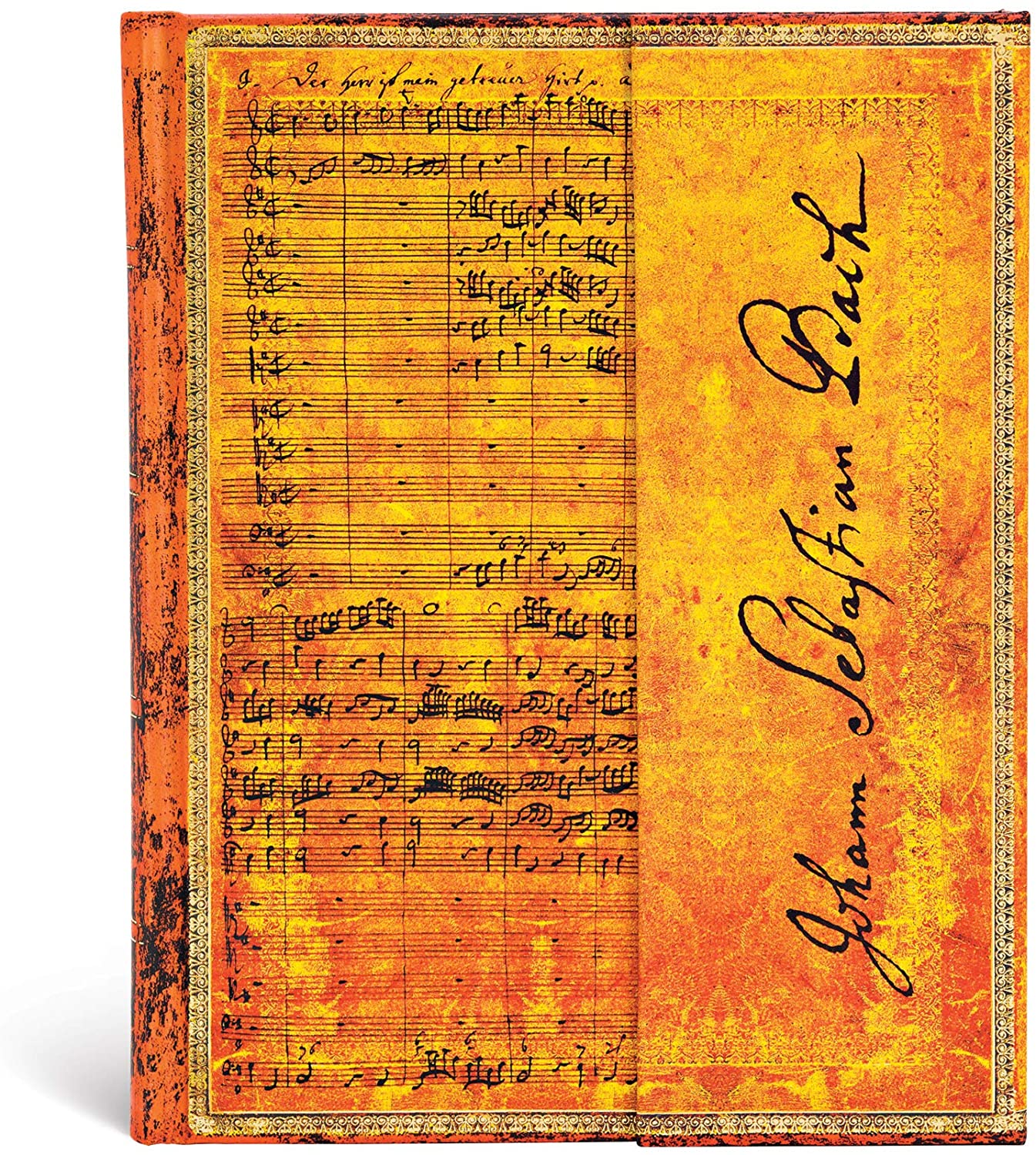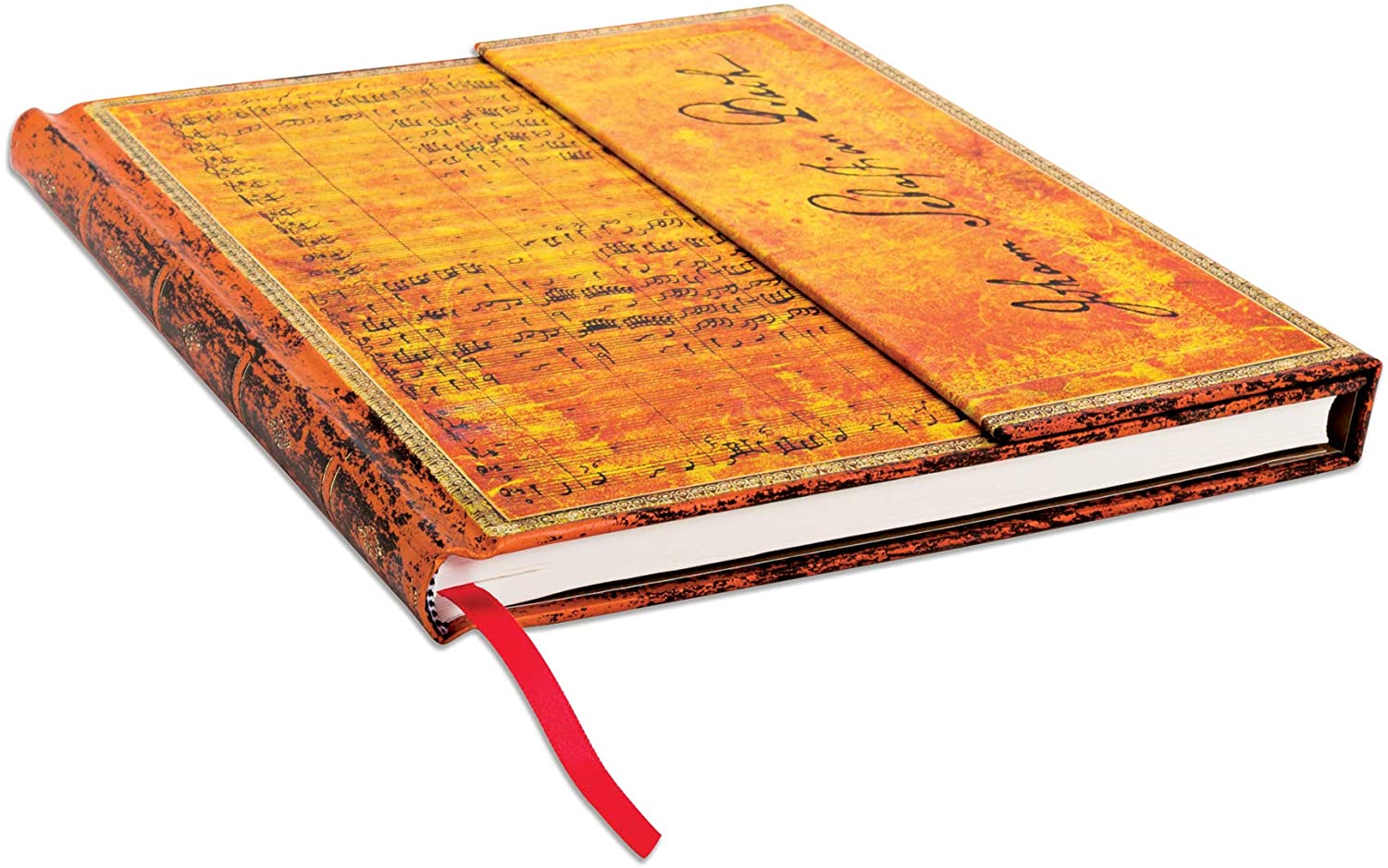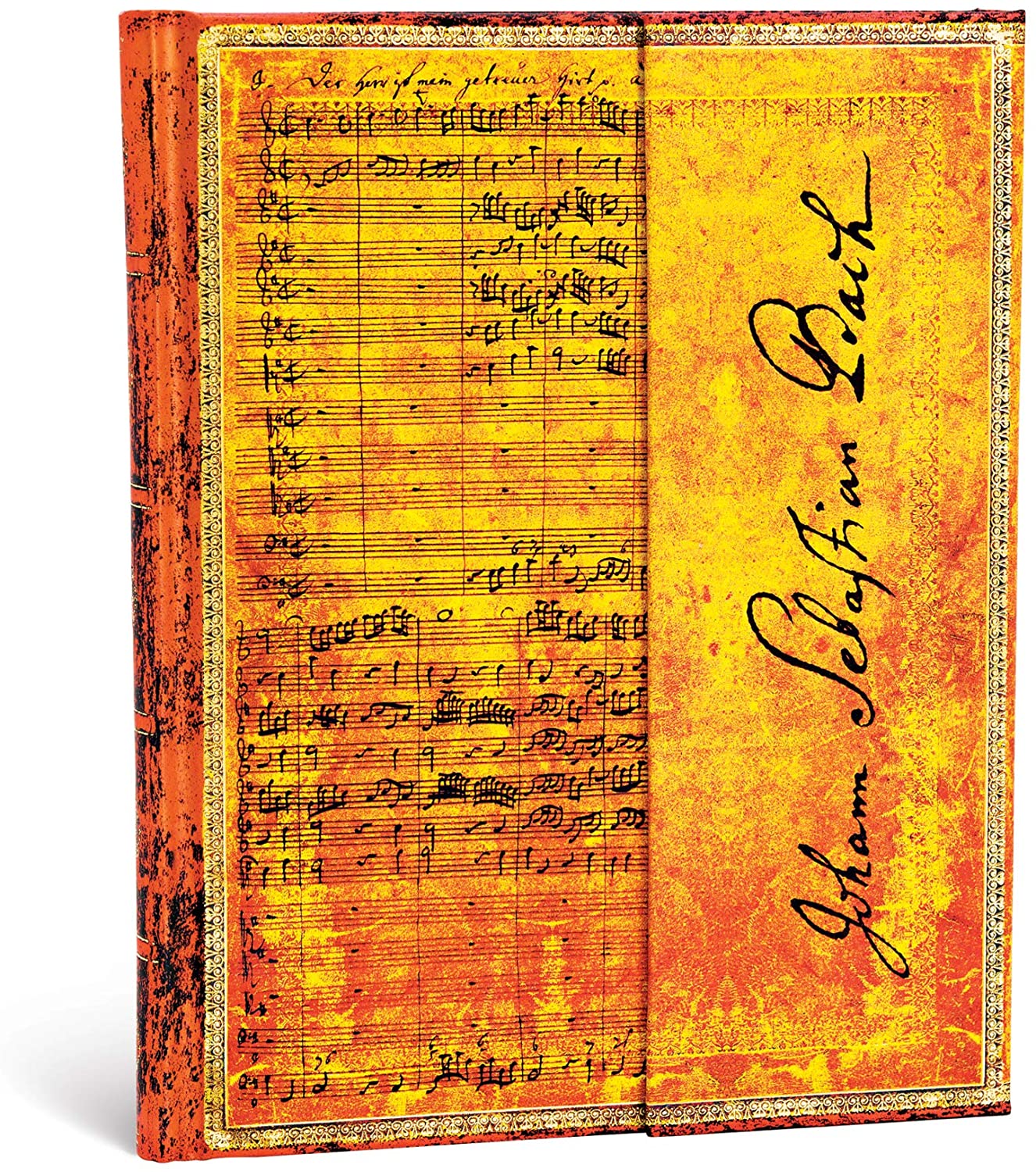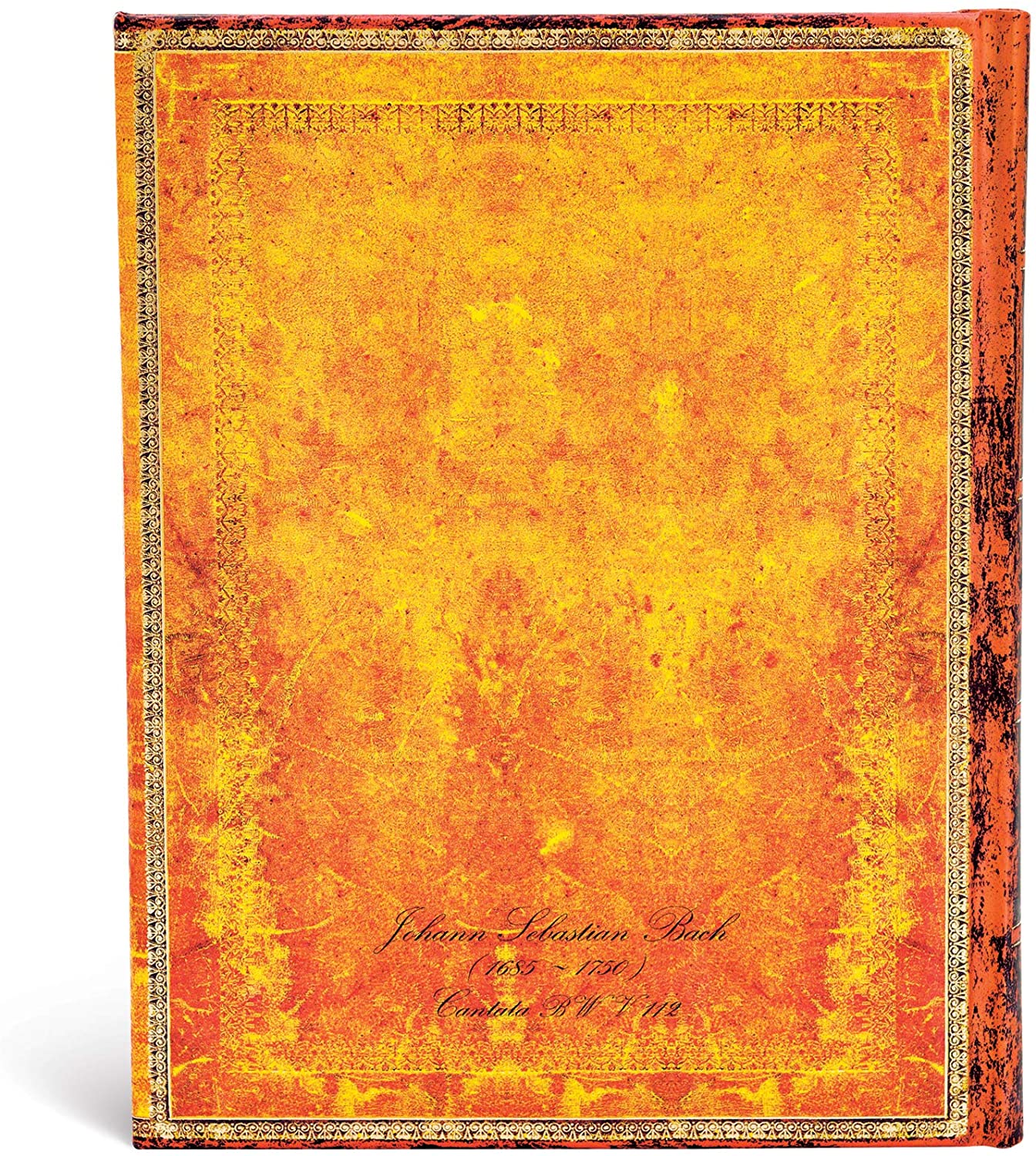Jurnal - Ultra, Unlined, Wrap - Bach, Cantata BWV 112 | Paperblanks

Detalii Jurnal - Ultra, Unlined, Wrap
Jurnal - Ultra, Unlined, Wrap - Disponibil la carturesti.ro
Pe YEO găsești Jurnal - Ultra, Unlined, Wrap de la Paperblanks, în categoria Scolaresti.
Indiferent de nevoile tale, Jurnal - Ultra, Unlined, Wrap - Bach, Cantata BWV 112 | Paperblanks din categoria Scolaresti îți poate aduce un echilibru perfect între calitate și preț, cu avantaje practice și moderne.
Preț: 126 Lei
Caracteristicile produsului Jurnal - Ultra, Unlined, Wrap
- Brand: Paperblanks
- Categoria: Scolaresti
- Magazin: carturesti.ro
- Ultima actualizare: 13-03-2024 01:29:58
Comandă Jurnal - Ultra, Unlined, Wrap Online, Simplu și Rapid
Prin intermediul platformei YEO, poți comanda Jurnal - Ultra, Unlined, Wrap de la carturesti.ro rapid și în siguranță. Bucură-te de o experiență de cumpărături online optimizată și descoperă cele mai bune oferte actualizate constant.
Descriere magazin:
Johann Sebastian Bach’s musical genius propelled him into the first rank of composers, and his influence with each new generation of musicians keeps him there. He is revered for his intellectual rigour, technical virtuosity and compositional beauty. Reproduced on our cover is a handwritten copy of Cantata BWV 112.Johann Sebastian Bach’s importance to the world at large is indisputable, his influence on the world of music immeasurable. Bach (1685–1705) is referred to as a genius, both by those who can appreciate the technical intricacies of his works and those who simply feel moved by the sounds of his compositions. He inspired veneration for his music in those who themselves would in time come to define the classical music canon.Recognized primarily as a virtuoso organist during his lifetime, Bach composed many distinguished pieces, including numerous church cantatas. Our journal cover features the cantata with the original title “The Lord is my faithful Shepherd,” known now as Cantata BWV 112 for its place in his collected works which were published in 1950. In his position as the Thomaskantor, the musical director of Leipzig’s choir service, Bach went on to compose hundreds of choral cantatas for Sunday and holiday church services.A composer of striking music, Bach could be described as retrograde in some respects but it is also obvious that artistically he pursued a course of his own choosing. During the Age of Enlightenment the supreme status of religion as the source of guidance in people’s lives was increasingly challenged by the role of human reason. Yet Bach put all his talent and dedication into the service of faith, proclaiming that “[m]usic’s only purpose should be the glory of God and the recreation of the human spirit.” This attitude went counter to the growing sentiment that the art of music should be enjoyed as an earthly, sensual pleasure, a view that Bach never adopted.First and foremost, Bach was a devout Protestant with a strong sense of duty, which was to glorify God through music. It was this path of spiritual devotion that led him to professional positions that would best afford him the opportunities to write music of worship. However, he also had to contend with the realities of the time and place in which he lived. Sometimes he was compelled to compromise and write secular pieces, both to support his large family and to meet society’s expectations. In fact, secular dance music became a distinct strand of influence on Bach’s composition, something that he used to heighten the expressiveness of his religious pieces.With his cantatas, including the one gracing this Embellished Manuscripts cover, Bach transcended religious division. Catholic and Protestant communities were brought together in their recognition of the universal beauty of Bach’s compositions. With this design, Paperblanks pays tribute to Bach both as a pillar of culture and as an ambassador for human goodwill.




Produse asemănătoare

Morris Windrush (William Morris) Ultra Unlined Journal, Paperback/Paperblanks
![]() elefant.ro
elefant.ro
Actualizat in 28/10/2025
144.99 Lei

Pear Garden, Ultra Lined Journal. Hardcover, Wrap Closure, 120 gsm, ribbon marker, memento pouch/***
![]() elefant.ro
elefant.ro
Actualizat in 28/10/2025
150.99 Lei

First Folio (Shakespeare\'s Library) Ultra Lined Softcover Flexi Journal, Paperback/Paperblanks
![]() elefant.ro
elefant.ro
Actualizat in 28/10/2025
144.99 Lei

First Folio (Shakespeare\'s Library) Ultra Unlined Softcover Flexi Journal, Paperback/Paperblanks
![]() elefant.ro
elefant.ro
Actualizat in 28/10/2025
144.99 Lei

Blue Velvet Ultra Lined Journal, Paperback/Paperblanks
![]() elefant.ro
elefant.ro
Actualizat in 28/10/2025
144.99 Lei

Spinola Hours (Ancient Illumination) Ultra Lined Softcover Flexi Journal, Paperback/Paperblanks
![]() elefant.ro
elefant.ro
Actualizat in 28/10/2025
144.99 Lei
Produse marca Paperblanks

The Chanin Spiral, Mini Lined Journal. Hardcover, 85 gsm, ribbon marker, memento pouch, elastic closure/***
![]() elefant.ro
elefant.ro
Actualizat in 28/10/2025
90.99 Lei

Lion\'s Den (Sybil Pye Bindings) Midi Unlined Hardcover Journal, Hardback/Paperblanks
![]() elefant.ro
elefant.ro
Actualizat in 28/10/2025
108.99 Lei

Morris Windrush (William Morris) Ultra Unlined Journal, Paperback/Paperblanks
![]() elefant.ro
elefant.ro
Actualizat in 28/10/2025
144.99 Lei

MOUTARDE, MIDI UNLINED FLEXI JOURNAL. Flexi softcover, 100 gsm, ribbon marker, memento pouch, book edge printing, no closure/***
![]() elefant.ro
elefant.ro
Actualizat in 28/10/2025
108.99 Lei

FIAMMETTA, MIDI UNLINED JOURNAL. Hardcover, 120 gsm, ribbon marker, memento pouch, elastic closure, book edge printing/***
![]() elefant.ro
elefant.ro
Actualizat in 28/10/2025
108.99 Lei

Pear Garden, Ultra Lined Journal. Hardcover, Wrap Closure, 120 gsm, ribbon marker, memento pouch/***
![]() elefant.ro
elefant.ro
Actualizat in 28/10/2025
150.99 Lei